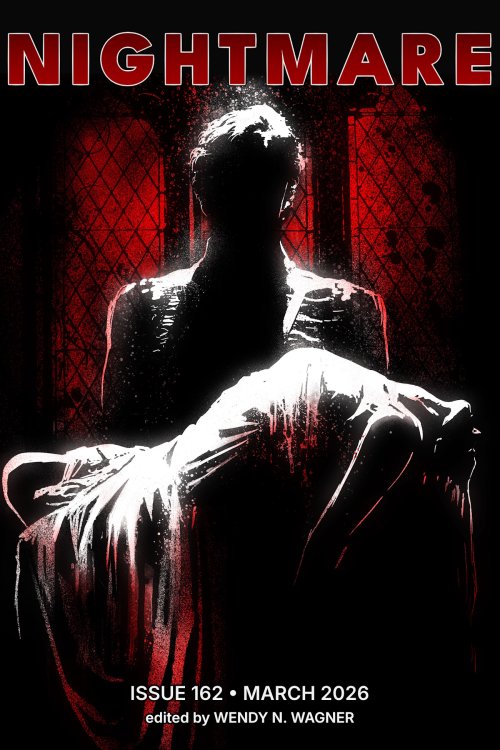Every now and then a reader has the pleasure of stumbling across a tiny gem of a story that encourages a smile and a satisfied nod at the last line. “The Forgetter” is one of those stories. What can you tell us about the inspiration behind this simple clerk’s simple life?
I actually dreamt the basic outline of this story—blood on the bricks, a body dangling gracefully. But the dream didn’t have a nightmarish quality. Instead, when I woke up, I felt sort of bemused, secure, maybe even cozy. That was the start of it. I’m sure a therapist or dream analyst would have lots to say about a story like this, but I consciously tried to avoid making it too allegorical. To live in the world today means accepting horrors as a matter of course, and the narrator certainly does that. I wanted it to read as if it’s all a big metaphor for something, but leave the something mysterious. That’s often how dreams feel to me, and sometimes the world feels that way too.
The story doesn’t overstay its welcome, which I feel adds to the impact. Did you intend for this to be a shorter piece or was that decision made during editing?
This is actually one of the shortest pieces I’ve ever written. Aiming for a specific length has never worked for me. (I wish it did, because the 5,000-word stories are a harder sell.) Instead, I start with the idea and try to flesh it out so that all the pieces are there for the reader to find, even if they’re hidden. For this story, maintaining the mystery wasn’t a priority at first, but every attempt I made to explore the larger world felt forced and didactic, so I left it brief.
The voice and deliciously spare prose reminded me of Poe, Wellman, and Ligotti. It is a character in and of itself, even separate from the narrator. As a writer, how conscious are you of voice and tone when reading? Do you have any authors in particular that appeal to you when it comes to narrative voice?
Style and tone are everything for me. I would fail a pop quiz on the plots and character names of many of the stories I’ve loved, but style sticks with me. I have a list of story ideas, as all writers do, but I also have a bank of concepts for tone/style/flow. I try to pair these two things up, and I don’t start on an idea until I have a good pairing that I think will sum up to more than the two parts.
I love Raymond Carver, Toni Morrison, and Ernest Hemingway. Donald Barthelme is incredible, and Lee K. Abbott has some moments of absolute genius. Italo Calvino is weird and wonderful. Borges. Bob Dylan. I love writers whose work implicitly argues that the voice is the character, and the character is the plot.
In addition to writing, you also tutor and teach. Which came first, the interest in helping others learn or the delight of storytelling? Or are they two sides of the same coin?
Same coin—or maybe two ends of the same couch that we’re trying to lift up the stairs. For me, fiction writing is driven by a need to push something up and out—an idea, an emotion, a regret. I’m trying to get it off my mind, or my soul, and some things are too complex or heavy to be lifted without the help of a reader.
Teaching, on the other hand, is a process of figuring out what someone else is trying to lift (or what’s blocking them), and then helping draw it out. Another way to say this is that writing is my way to show people the fullness of my mind, and teaching is my way to get people to identify what’s in their mind and then help them share it. Even when it comes to dry material like standardized tests, I enjoy getting inside a student’s mind and helping them move the furniture. Until we have brain-to-brain HDMI cables, words are all we’ve got.
What’s next for Andrew Snover? What can interested readers look forward to in 2024?
I had a pretty big 2023—finishing up my MFA thesis and novel manuscript, attending the Sewanee Writers’ Conference, tons of submitting stories and querying agents. Next year is a year for the grind. I have revisions to do, story ideas to write, and a ton of books to read. Interested readers can check my website for updates and previously published stories.









